Published
- 06:00 am
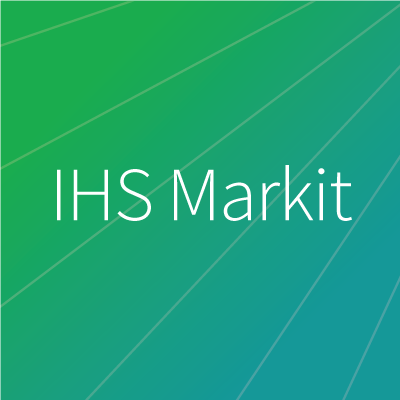
IHS Markit (NYSE: INFO), a world leader in critical information, analytics and solutions, today announced that Western Asset Management Company, LLC, the $450 billion global fixed income asset manager based in Pasadena, California, has selected its Enterprise Data Management (EDM) solution delivered as a managed service. Western Asset will be using EDM to master core data sets including securities, prices, benchmarks and counterparties.
“Transforming our operations and making data an asset are central to our operational strategy,” said Kevin Brennan, Head of Investment Operations at Western Asset. “The EDM platform will provide a single integrated platform to master core data, creating greater leverage in our business model and allowing us to focus more time on other aspects of our operational infrastructure. Our partnership with IHS Markit is emblematic of our transformation efforts, coupling a leading technology platform with a managed service to better serve our global business.”
EDM is replacing internally built applications which will enable Western Asset to centralize its data management practices and improve operational efficiency. The managed service, which runs on Amazon Web Services, will give the business more control over the firm’s data assets with less reliance on technology teams.
“As asset managers face an increasingly challenging market with rising costs and demanding regulations, they are looking for ways to become more efficient,” said Andrew Eisen, global head of EDM and thinkFolio at IHS Markit. “By centralizing their data management in the cloud, Western Asset will achieve greater operational efficiency and the business will be able to make faster decisions based on timely, high quality data.”
Related News
- 02:00 am

DriveWealth, LLC, a U.S. based leader in global digital trading technology, today announced a partnership with Bamboo, a digital investment platform that gives Nigerians real-time access to invest in or trade over 3,500 stocks listed on the U.S. stock market or their local exchanges, directly from their mobile phones or computers.
Bamboo CEO Richmond Bassey said that Bamboo is “on a mission to even out the playing field for access to global investment opportunities for everyday Nigerians.” He said: “We believe Nigerians who want to grow their personal wealth in the long-term and take part in the global markets should have an investment platform they can trust to do so. Our partnership with DriveWealth is helping us make our mission a reality.”
Bamboo’s advisor and managing partner of Magic VC, Goke Olubusi, said: “Bamboo wants to help users protect against devaluation and high inflation as well as grow their money and earn real returns. Starting with access to U.S.-listed stocks, Bamboo makes it fast and seamless to discover the best global and local companies in which to invest.”
DriveWealth CEO Robert Cortright said: “We are delighted to work with Bamboo in Nigeria to fulfill our shared goal of making stock market investing easy and affordable to those who previously faced barriers to investing. DriveWealth provides the firm with our customizable technology behind the scenes, and the ability to help local investors participate in the U.S. market with real-time fractional shares in some of the world’s most recognized brands.”
Bamboo is also partnering with Lambeth Capital, a licensed Nigerian stockbroking firm, and Flutterwave, one of Africa’s largest payment platforms, to enable its users to get quick access to the U.S. stock market.
Lambeth Capital CEO Oladapo Benjamin Olubunmi said: “We are excited to partner with Bamboo because of our shared values, one of which is to make it as simple as possible for anyone, anywhere to invest. This is what Bamboo is doing, and it is long overdue. With DriveWealth providing seamless access to the U.S. market, Nigerians can build a truly global portfolio.”
With as little as $20, users can fund their Bamboo wallets including payment cards and bank transfers almost instantly and start buying and selling stocks or exchange-traded funds (ETFs). Users are also able to learn from the rich educational content which the app offers and receive regular market updates. The app is accessible to anyone with a Nigerian Bank Verification Number (BVN). Bamboo uses bank-level security including Two-Factor (2FA) Authentication, and via the partnership with DriveWealth, a member of the U.S. Securities Investor Protection Corporation (SIPC), each Bamboo account is insured up to $500,000.
DriveWealth has launched partnerships with firms on six continents, offering its innovative investing technology and a customizable suite of application programming interfaces (APIs) that partners can use to provide major new investment capabilities to their clients. Through these partnerships, the firm has pioneered bringing digital access to the U.S. securities market for individuals around the world, enabling investors of any size to gain affordable access to the U.S. stock market with a straightforward online user experience.
This year alone, DriveWealth has increased access to the U.S. markets with new partnerships in Nigeria, India and Brazil, in addition to a groundbreaking new offering with Revolut in Europe. DriveWealth, which launched its patent-pending real-time fractional share trading capabilities in 2016, was founded with the mission to democratize investing in the U.S. stock market. The firm is dedicated to eliminating barriers investors typically encounter with legacy brokers, creating its own proprietary infrastructure that allows investors to purchase securities without minimum account balances, high transaction costs or full share quantities.
Related News
- 09:00 am

Banking Circle has been named as a Gold winner in the Juniper Research Future Digital Award for Payment Innovation: Best B2B Payment Platform. Banking Circle is a next-generation provider of financial services infrastructure that is leading the rise of a super-correspondent banking network and increasing financial inclusion.
Juniper Research has been delivering thought leadership and analysis in the Fintech and Payment industries for more than a decade, covering topics ranging from Blockchain and Banking Automation to Contactless Payments and Mobile Wallets. The primary objective of the Future Digital Awards is to identify and recognise companies that have excelled in their respective fields.
Anders la Cour, co-founder and Chief Executive Officer of Banking Circle said of the win: “Juniper Research is an influential organisation in our industry, and for them to present us with a Gold Award recognising our achievements in payment innovation is a great honour. Our team has worked hard to build and continually develop a platform which delivers what businesses need to empower international trade.
“Banking Circle Virtual IBAN allows businesses to send and receive payments anywhere in the world at a low cost and in real-time, eliminating the reliance on multiple banking relationships in different territories. This is providing easier access to cross border payments for even the smallest business, increasing financial inclusion for SMEs around the world.”
With full transaction transparency, through Banking Circle Virtual IBAN payments acceptance is improved, errors reduced, and screening, reconciliation and settlement times are dramatically reduced. Banking Circle Virtual IBAN handles 1.5m transactions each month, and 2.5m Virtual IBANs having been issued to 100 institutional clients, allowing them to automate their reconciliation processes, reducing operational headcount and cutting costs.
The use cases for Banking Circle Virtual IBAN have increased significantly since launch. Initially starting as a means for supporting cross border payments for FX and payments businesses it has now been modified to support prepaid card issuing, marketplaces and marketplace sellers, InsurTech, FinTech banking providers, payroll, and invoice discounting with many more to follow.
Related News
- 06:00 am
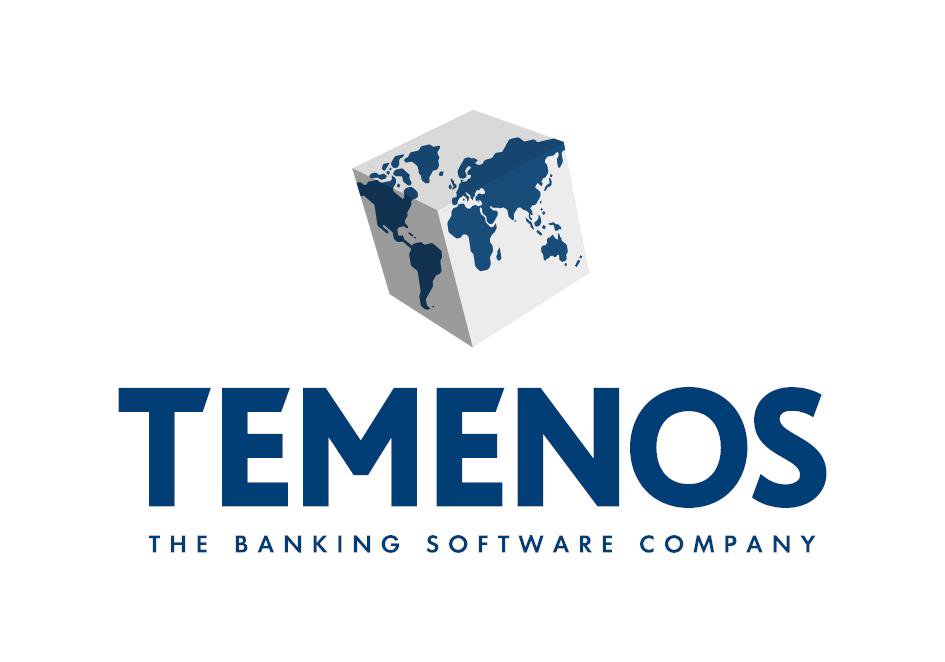
Temenos (SIX: TEMN), the banking software company, today announced the winners of the largest Temenos Innovation Hackathon to-date, which used the extensive ecosystem of open APIs available on its Developer Portal. The winning team was recognized for its highly innovative offline payments app out of 157 participating teams made up of almost 800 participants from Temenos development teams across offices in Bangalore, Chennai and Hyderabad.
The winning team was awarded first prize out of six finalists selected to perform a live demo to Temenos’ executive committee. Using the open API ecosystem and sandbox development environment available on the Temenos Developer Portal, in conjunction with the agility of the newly acquired Kony platform, the winning team were able to rapidly develop an impressive digital offline payments app with ambitious potential to transform and streamline the customer journey.
Teams that participated in the 48 hour hackathon from 18-20 October were tasked with designing an innovative prototype for a standalone banking-related application or an innovation around Temenos’ existing product portfolio. Participating developers had access to more than 700 published API end points which are readily available to the Temenos Development Community on the Temenos Developer Portal.
Judges scored teams on their prototype’s innovation value and ambition of scope, its demonstrability and the app’s overall potential value to financial institutions and end-users. Runners-up presented solutions including advanced fraud detection using graph database techniques, next-generation chatbot-enabled software configuration, sentiment analysis for customer retention using machine learning and innovative budgeting and payments solutions.
Max Chuard, CEO, Temenos, commented: “Temenos has a relentless focus on innovation – that’s why we invest 20% of our revenue into R&D, the highest rate in the banking software industry and more than twice the industry average. Our continued commitment and passion for development brings this innovation not just to our own software, but also gives banks the freedom to innovate. We believe that our customers are at the leading-edge of the banking industry when it comes to innovation, which is why it is so important for us to continue to foster a culture of creativity within Temenos. I am proud to announce the winners of our largest Innovation Hackathon to date and recognize the creative talents of our Indian developer team, who are at the heart of our product organization.”
Temenos’ open API ecosystem provides a community of developers from banks, fintechs and partners the ability to collaborate, innovate and integrate faster than ever before and build out their digital banking capabilities. In addition to its extensible library of APIs, Temenos Developer Portal delivers live, cloud-based sandboxes, demos, trainings and code clinics, empowering developers to innovate at speed and accelerate time to value to quickly transform customer journeys.
Temenos has an extensive history of innovation and a track record of industry firsts behind its name. In 2002, Temenos became the first to offer a core banking system with real-time 24/7 processing; it was the first to launch a core banking offering in the cloud in 2011, and also launched the first combined payments hub and core banking platform in 2017. Temenos MarketPlace, which provides access to over 100 complementary financial software solutions from over 80 fintech partners, was also the first of its kind in banking.
Related News
- 07:00 am
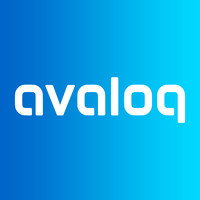
Avaloq’s e-banking solution is now in operation at Thurgauer Kantonalbank (TKB). E-banking has been integrated into the bank’s existing customer portal, providing a comprehensive solution for end customers. TKB is one of Avaloq’s longest standing clients, having worked with the Swiss fintech since 2005.
Avaloq’s e-banking solution has been fully integrated into TKB’s OLIVIA customer portal. The portal was already based on the Avaloq platform and offers customers self-service functionalities such as a financial assistant or foreign currency orders.
With the new solution, end customers can take advantage of a comprehensive solution – including a mobile app – with a consistent look and feel. The e-banking application has been embedded into TKB’s existing content management system. In addition, the previous way of logging-in, which required using a code sent by text message, has been replaced by Key app login.
“By integrating e-banking into our OLIVIA portal, our customers will have one-stop access to all of the bank’s online services. This will make the user experience much more convenient,” said Rolf Brunner, Member of the Executive Board at Thurgauer Kantonalbank. “Avaloq’s platform enables us to integrate new functionalities on an ongoing basis and to handle both in-house and external processes more efficiently.”
Mathias Schütz, Regional Manager Switzerland and Liechtenstein at Avaloq, added: “TKB has a systematic focus on digitalisation, working continuously to enhance its customers’ user experience. We are looking forward to building on our long working relationship with the group, with our services at the centre of TKB’s digitalisation strategy.”
Related News
- 05:00 am

Evolving threats and hacks have had the biggest impact on moving the cybersecurity industry forward in the last 25 years, according to 39 percent of respondents to a social media poll conducted by Infosecurity Europe– Europe’s number one information security event, which celebrates its 25th anniversary next year.
Necessity is the mother of invention. Constantly advancing technologies, attack vectors and techniques have forced the industry to keep innovating over the last quarter century. Necessary regulatory oversight and compliance requirements may also have kept CSOs awake at night, but only 17 percent of respondents believe these had a major influence on cybersecurity development. This could reflect a feeling that legislation and regulation have little real power to move the industry on – which might indicate a need to examine and update existing regulation, including the UK Computer Misuse Act which will be 30 years old in 2020.
The emergence of new technologies has helped the industry to make strides, according to respondents, with 25 percent agreeing that multi-factor authentication and (MFA) and encryption were catalysts for progress. Web security expert and creator of ‘Have I Been Pwned?’, Troy Hunt, agrees this has made a huge difference: “It’s been recognised that a username and password are no longer enough, and now we have a range of different mechanisms from SMS to hard tokens. The adoption rates are still not particularly good, especially for external facing assets, but as a principle this is a fantastic thing – and where adoption is higher it does make a fundamental difference to the security landscape.”
We’re heading for a ‘mega-breach’. Respondents to the Infosecurity Europe poll believe that the most damaging form of cyber-attack to happen over the next 25 years will be the world’s biggest ever data loss (42 percent). This is followed by an attack on smart cities (30 percent), and an attack on critical national infrastructure (CNI) at 12 percent. Only 16 percent feel that the major event will involve ransomware – perhaps surprising given the considerable publicity given to this type of attack, and the high level of concern around it.
Nigel Stanley, Chief Technology Officer and global head of OT cybersecurity at TÜV Rheinland, says the likelihood of an attack on CNI should not be underestimated: “A systemic attack on a fundamental service or vital industry would cause widespread unrest, disruption and damage, and have a significant societal impact. But my concern are the attacks being carried out today. Vast amounts of intellectual property, knowledge and data are being stolen as we speak and a future attack based on this could seriously challenge our defences, supporting systems and even way of life.”
Better technology will improve cybersecurity more than solving the skills shortage, according to 38 per cent of respondents, followed by AI and machine learning (27 percent). Despite expanding the talent pool being a high priority across the industry, respondents believe this will only make a relatively small impact in the next 25 years (16 percent). This may be due to a lack of faith in the industry’s ability to solve the key shortage, rather than a belief that doing so is of little importance. Again, regulation and compliance are not seen as a key driving force, with 19 percent saying that this will improve cybersecurity.
Nicole Mills at Infosecurity Group, says: “Threats and hacks have driven the evolution of the cybersecurity industry over the last 25 years, and they probably always will do. The major concern around the future is data-loss – it appears that data is still king, and this is expected to remain the primary motive for cyber-attacks. We should be thinking hard about where the next big attacks will be – the healthcare or finance sectors, for example – and whether we need to do more now to prevent them. It’s good news for vendors that technology is perceived to hold the key to the future of cybersecurity, and they must keep on improving their products and services to meet this expectation.
“As individuals, as organisations and as an industry, we must all continue to work hard to stay one step ahead of the attackers. There will be plenty of opportunities at Infosecurity Europe 2020 for visitors to hone their skills and their strategies and explore cutting-edge innovations and companies. These include FutureSec, a series of events and sessions that address the future of the information security industry by focusing on people and innovation.”
Attracting 8,290 responses, the Infosecurity Europe Twitter poll was conducted during the week of 4 November. Infosecurity Europe also asked its community of CISOs for their views on innovation in cybersecurity.
Infosecurity Europe, now in its 25th year, takes place at Olympia, Hammersmith, London, from 2-4 June 2020. It attracts over 19,500 unique information security professionals attending from every segment of the industry, as well as 400+ exhibitors showcasing their products and services, industry analysts, worldwide press and policy experts. More than 200 industry speakers are lined up to take part in the free-to-attend conference, seminar and workshop programme.
Related News
- 03:00 am

NTT Ltd., the world-leading global technology services provider, has today announced its Future Disrupted: 2020 technology trends predictions. They’re based on the most critical technology trends companies need to be aware of next year and the steps they need to take to address them. Formed from key insights from its technology experts, the company outlines the trends that will shape the business technology landscape throughout 2020 across six key areas: Disruptive Technologies, Cybersecurity, Workplace, Infrastructure, Business, and Technology Services. NTT Ltd. CTO Ettienne Reinecke predicts mainstream adoption of disruptive technologies in 2020 will finally see data, automation and internet of things (IoT) technologies come together to create connected cities and societies.
The company predicts that 2020 will finally see all the hype words of the past decade come together to create completely connected environments that are capable of running themselves autonomously to build more intelligent cities, workplaces and businesses – and on a secure basis. Data, AI and secure by design will be at the heart of this movement, empowering devices to talk to one another and act on that information without human intervention. Smart cities and IoT will become the norm as they improve productivity, growth and innovation across entire regions.
NTT Ltd. is the newly-formed company bringing together 40,000 people from across 31 brands – including NTT Communications, Dimension Data and NTT Security – to serve 10,000 clients from around the world. Using the insights gathered from its global client base, NTT Ltd. is able to better understand the future and shape the most effective intelligent technology solutions for its customers. The Future Disrupted: 2020 Technology Trends looks at the way businesses need to prepare for tomorrow, in the next year.
Commenting on the predictions, Ettienne Reinecke said: “The industry has been talking about different technologies, including the cloud, data, AI and security in different siloes. But 2020 is the year that will change. Next year, we’ll see complete end-to-end computing come to the fore, bringing to life fully intelligent environments that are completely connected and will have a big impact on the world we live in.
“We will see most cities and societies starting to follow in the footsteps of Las Vegas City, which has become intelligent in the way it shares data across the region, improving situational awareness through video and sound data. With IoT technology on a secure infrastructure, it’s created a safer environment to live in, improving living conditions and, ultimately, saving lives. Projects like these need a variety of different technology capabilities to come together in order to achieve great things, so building fully connected environments will be the key focus point next year.”
The predictions have been compiled by NTT experts, who have identified key trends for the next twelve months as well as the disruptive technologies we can expect in the future – and the steps businesses can take in 2020 to take full advantage of them.
Quote from Ettienne: “Technology is already changing quickly, but this is the slowest pace of change we’ll ever see. It’s clear too that we’ve never before had so much powerful technology at our disposal – technology we can use to answer questions and solve problems in our societies, businesses, and communities. There is a huge opportunity to use any and every tool out there to support innovation initiatives in every field and truly transform our future world for the better.”
Some of the disruptive technologies from the predictions include:
- Digital twinning: With enough datapoints, you can model behaviour and understand patterns – for example, the diet of someone’s biometric twin – and come to more accurate conclusions (the time it would take before a health incident occurs), more quickly, and at a fraction of the cost of modern-day science.
- Building trust through digital interactions: Now that AI has evolved, we can move from being purely transactional to having a more relational engagement with customers, applying rules that bring empathy to the interaction and establish trust with the customer.
- Immersive, responsive ‘phygital’ spaces, where the physical world blends with the digital take any physical space – a meeting room, office, shop, VIP box in a stadium – and plug in a limited series of technologies to transform it into a virtual environment that can create any range of experiences.
- Smart buildings that will use IoT to make their inhabitants feel more comfortable – automatically adjusting temperatures to the number of people in them, or lighting to the time of day – while becoming more sustainable too.
- ‘Data wallets’, putting data in the hands of the person who owns it and making it completely secure for them. Nobody can access that data without certain permissions being in place and, if the user is under threat, can be locked down.
Related News
- 03:00 am
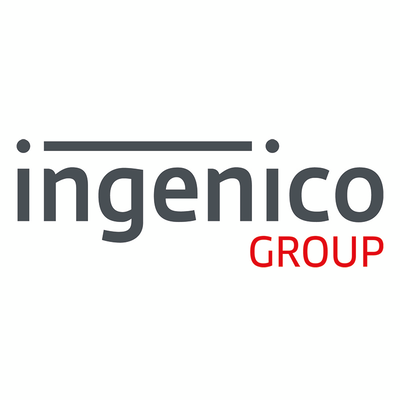
Ingenico Group, the global leader in seamless payment, and Singapore-based Fintech Pundi X have just announced a major milestone in the global adoption of crypto payments, as Pundi X has completed the integration of their XPOS software with the point-of-sale (POS) APOS A8 devices of Ingenico.
Leveraging blockchain to facilitate payments
Through this partnership, merchants around the world using APOS A8, Ingenico’s portable POS solution that runs on Android, will now be able to accept various cryptocurrencies as payment options and provide consumers with more secure and seamless transactions experience, powered by blockchain technology.
We are honored and excited to partner with one of the largest payment leaders in the world. Pundi X can now leverage the APOS A8, the most widely sold Android payment device in the world and benefit from Ingenico’s global support in a number of key markets.” said Zac Cheah, Co-Founder and CEO of Pundi X. “Enabling crypto payments in Ingenico’s APOS A8 devices will undoubtedly make cryptocurrencies and blockchain technology more accessible to even more people.”
Ingenico is always on the lookout for innovations that will further improve transactional processes, and we see Pundi X’s use of blockchain technology in points of sales as truly innovative,” said Marcus Low, Senior Vice President, Asia Pacific of Ingenico Group. “This partnership is as a great way to prepare for the future of payments and introduce cryptocurrency as a reliable payment option to our clients and customers worldwide.”
Seamless crypto payments for a growing blockchain community
Installing the XPOS module on an Ingenico POS terminal will enable merchants to process transactions in various cryptocurrencies, including BTC, ETH, BNB, XEM, DGX, DAI, ENQ, KNC, KCS, FX, QTUM, NPXS, NPXSXEM and other cryptocurrencies that are part of Pundi X payment ecosystem.
When transacting with Ingenico’s APOS A8 solution, merchants with XPOS module and crypto token holders will be able to transact directly through XWallet mobile app or XPASS cards, Pundi X’s physical multi-currency crypto card that facilitates crypto payments. The POS device will automatically provide conversion rates between fiat and crypto currencies at the retail outlets, enabling a seamless and speedy crypto transaction experience.
Pundi X’s XPOS software solution is available for deployment on all Ingenico APOS A8 devices in all major markets all around the world.
Related News
- 06:00 am
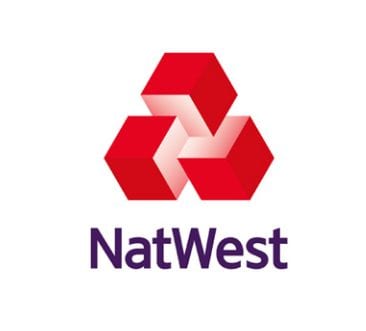
NatWest has today announced a new technology integration with global accountancy software provider Xero, which will allow its subscribers to access a NatWest financing service directly from the Xero platform.
Using Single Sign On (SSO) technology, Xero users will have direct access to NatWest’s Rapid Cash service, which provides businesses with a flexible line of credit to cover unpaid invoices for up to £500,000, offering greater flexibility and a fast solution to temporary cash flow difficulties. Rapid Cash will be the first working capital product to have this level of integration with Xero in the UK.
The move is part of the bank’s intention to introduce broader connectivity between its suite of digital banking services, and other major providers in the business banking sector.
New Zealand based tech company Xero provide cloud-based accountancy software targeted at small and medium sized businesses. Born-in-the-cloud, Xero is an easy-to-use platform for small businesses and their advisors around the world. In the UK, Xero provides 536,000 businesses with connections to a thriving ecosystem of 800+ third-party apps and 200+ connections to banks and financial service providers.
NatWest launches the new feature today having also introduced a similar level of functionality with its accountancy software business FreeAgent several months ago, which over 100,000 UK sole trader and small SME customers now use. The bank acquired the Edinburgh based fintech in 2018, which continues to operate as an operationally independent entity.
Andy Ellis, Head of NatWest Ventures, said: “We’re pleased to be able to begin offering our innovative new services, such as Rapid Cash, to users of Xero from today. Businesses increasingly tell us that they want simple, easy access to our products and services. By offering our solutions directly through the platforms that customers use to manage their business day to day, we’re making it easier for them to get the support they need - whether that’s funding, products or our expert advice.’
Edward Berks, Director of Platform Business, UK & EMEA, Xero, said: "Small businesses have historically fallen behind larger firms in accessing the best financial services. This means they often struggle to access capital which can threaten their very existence. So it's great to see the playing field level out through innovations such as NatWest Rapid Cash."
NatWest is a sponsor at this year’s Xerocon event, taking place at the London ExCel between 12-14 November, where the bank will be exhibiting its key digital ventures with attendees.
Related News
- 08:00 am

Revolut has today announced the appointment of Martin Gilbert as its Non-Executive Chairman, as the fast growing fintech continues to strengthen its senior leadership team in line with future growth plans.
In recent months, Revolut has signed new global deals with Visa and Mastercard, expanded into Australia and Singapore, and opened one million new accounts in October.
Martin, the former Co-Chief Executive of Standard Life Aberdeen, Co-Founder of Aberdeen Asset Management and Chairman of the PRA Practitioner Panel, will begin his role as of January 1st 2020. Prior to his formal appointment, Mr Gilbert has been working closely with CEO Nik Storonsky in an advisory capacity.
Revolut has made a number of key appointments across its senior management team in recent months. Richard Davies, the former COO of HSBC Commercial Banking, joined as the company’s new Chief Operating Officer in July, while Dave MacLean, the former Finance Director at Metro Bank, joined in October as Chief Financial Officer.
Commenting on the new appointment, Nik Storonsky, Founder & CEO at Revolut said: “As we prepare to scale the business globally it’s crucial our senior team has a blend of forward-thinking creativity and experience. Martin is a respected veteran of the financial world, and brings unparalleled experience to Revolut. His knowledge will prove invaluable as we continue our mission to become the world’s first truly global bank.”
Martin Gilbert commented: “Revolut is a unique proposition in the digital banking world, and I’m pleased to be joining the Board at such an important stage in its development. Nik and the team have made great strides towards building the bank of the future, and I’m proud to add my deep experience of Board governance and corporate growth to the Board as Revolut continues to expand on a global scale.”
Since launching in 2015 Revolut has grown to service eight million customers worldwide and opened over one million new accounts in October 2019 alone. This year, Revolut launched its services in Singapore and Australia, and the company is on course to launch in the United States by the end of the year.
With Revolut, customers can spend and transfer money globally at the real exchange rate, exchange currencies in the app, manage their money with instant analytics and budgeting controls, buy and sell cryptocurrencies, and it most recently launched a new commission-free stock trading service.









